Search
Search Results
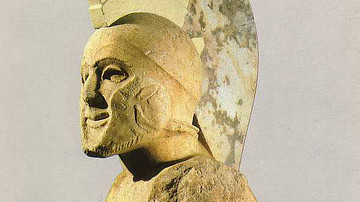
Definition
Leonidas I of Sparta
Leonidas was the Spartan king who famously led a small band of Greek allies at the Battle of Thermopylae in 480 BCE where the Greeks valiantly defended the pass through which the Persian king Xerxes sought to invade Greece with his massive...
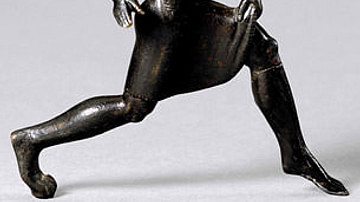
Definition
Gorgo of Sparta
Gorgo was the queen of the Greek city-state of Sparta, daughter of the king Cleomenes (r. 520-490 BCE), wife of King Leonidas (r. 490-480 BCE), and mother of King Pleistarchus (r. 480-458 BCE). Her birth and death dates are unclear as women...
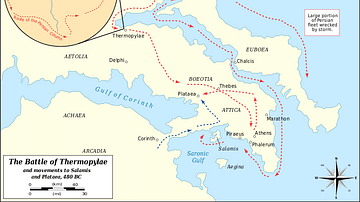
Definition
Battle of Thermopylae
Thermopylae is a mountain pass near the sea in northern Greece which was the site of several battles in antiquity, the most famous being that between Persians and Greeks in August 480 BCE. Despite being greatly inferior in numbers, the Greeks...

Image
Leonidas
A 5th century BCE marble figure of a Spartan hoplite, perhaps of Leonidas in memory of his sacrifice at the Battle of Thermopylae in 480 BCE. (Archaeological Museum of Sparta, Greece).
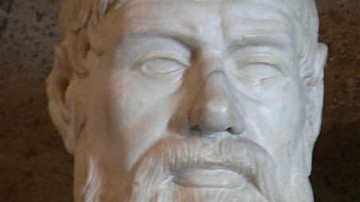
Definition
Pausanias (General)
Pausanias (c. 510 - c. 465 BCE) was a Spartan regent and general who won glory by leading a combined Greek force to victory over the Persians at the Battle of Plataea in 479 BCE. Famously immodest regarding his own talent, he was beset by...
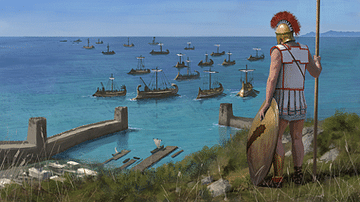
Definition
Persian Wars
The Persian Wars refers to the conflict between Greece and Persia in the 5th century BCE which involved two invasions by the latter in 490 and 480 BCE. Several of the most famous and significant battles in history were fought during the Wars...
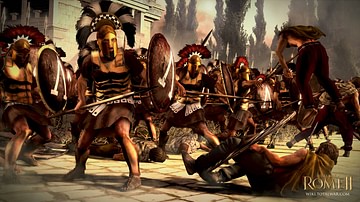
Definition
Sparta
Sparta was one of the most important city-states in ancient Greece and was famous for its military prowess. The professional and well-trained Spartan hoplites with their distinctive red cloaks and long hair were probably the best and most...
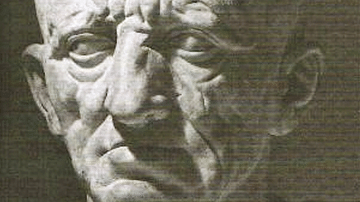
Definition
Cato the Elder
Marcus Porcius Cato, better known as Cato the Censor or Cato the Elder (234-149 BCE), was an influential political figure of the Roman Republic. Serving as quaestor, aedile, praetor, consul, and censor, he championed Roman virtues and detested...
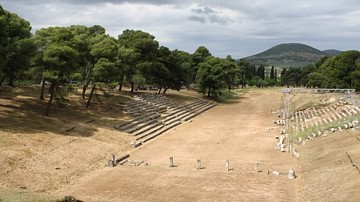
Definition
Stadium
In the ancient Greek world, the word stadium or stadion referred to a measurement of distance, a foot-race, and the place where the race was held and observed by spectators. The Great Games Greek sporting events were closely connected...
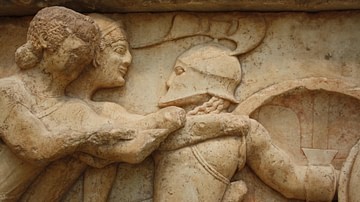
Definition
Ancient Greek Warfare
In the ancient Greek world, warfare was seen as a necessary evil of the human condition. Whether it be small frontier skirmishes between neighbouring city-states, lengthy city-sieges, civil wars, or large-scale battles between multi-alliance...